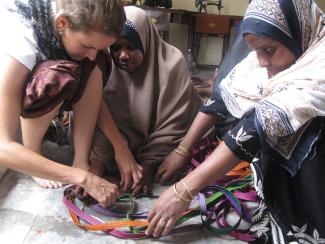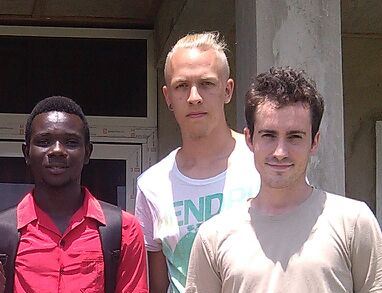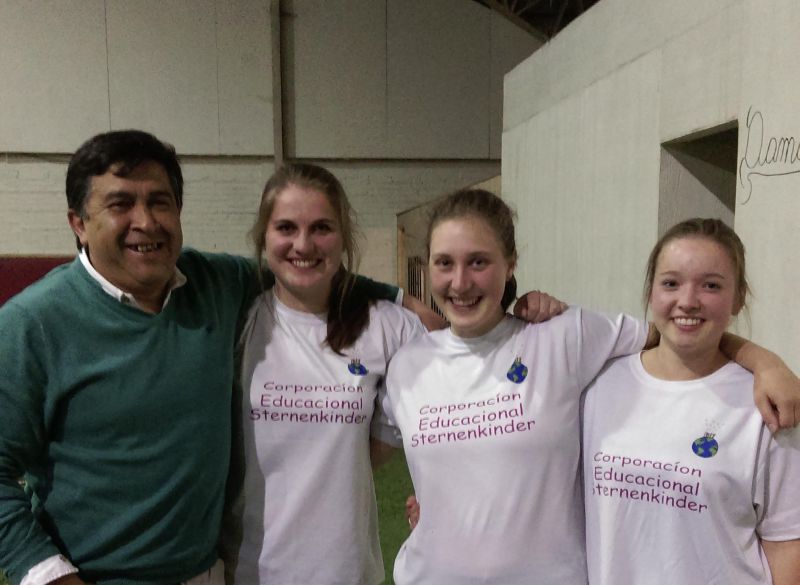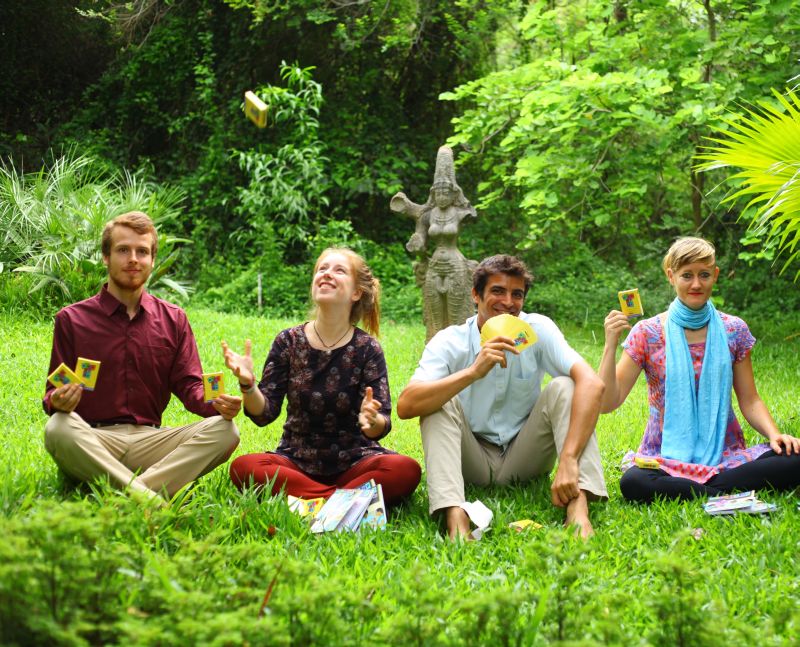Youth
Unknown reality

Why are young people interested in including volunteer work in trips abroad?
Well, I can only speculate, and I imagine that not only young people of the age that qualifies for weltwärts are affected, but that some people in their mid 30s want to volunteer services as well. Caring and acting in an altruistic way are widely appreciated.
Are people driven by curiosity or even voyeurism if they want to see poverty in a Third World country?
I would not call this voyeurism, but curiosity and being open certainly matter. People want to see the world beyond the beaten tourist paths. They want to get an idea of a foreign, unknown reality.
Do short stints of two or three weeks allow people to understand a foreign reality?
Well, one surely can only understand a different culture to a very limited extent in such a short time span. First impressions are always superficial, and that is why weltwärts volunteers must spend at least six months in the project they support. Most participants go there for an entire year, and that makes sense, because it takes quite a while for a volunteer from Germany to become able to make a meaningful difference in a developing country. Our participants’ initial experience is normally that they cannot support their partners at all, but actually demand a lot of their partners time because so much needs to be explained to them. The point is that we are not lending support from a position of superiority. It is all about real partnership.
How do partner organisations benefit from weltwärts?
There are several kinds of benefits:
- Once the young Germans have become acquainted with the place and understand their jobs, they often prove to be really useful in day-to-day operations.
- An organisation’s reputation is boosted when foreigners work for it, and foreign participants can encourage local people to become involved too.
- Interaction with the German organisations that second the volunteers grows more intensive – for instance when both partners define criteria for suitable applicants together. The cooperative relationship becomes stronger.
In principle, all organisations can benefit from an outsider joining and putting into question many things that seem obvious to insiders.
Yes, such engagement can prove very valuable. However, it can backfire too. For instance, when partners feel that volunteers reveal a lack of respect or arrogance, for instance, by casting doubt on business as usual or hierarchical orders. However, new human relationships are created within the project and beyond it. Personal exchange is quite intense, and inter-cultural competence develops on both sides.
What impact does weltwärts have on German volunteers?
They come home as more independent and more self-confident persons. While away, they often change their political views and general attitudes. Many join weltwärts after finishing school or vocational training, leaving home for the first time. They have to cope with an environment that is absolutely alien at first, and in which the German language is not understood. It takes courage to join weltwärts. Participants join new communities. The personal ties to “their” projects often become very strong. They stay in touch and want to know who their successors are and how the project is developing. Many stay engaged after their stay abroad, supporting the project or starting new initiatives.
Does weltwärts have an impact on career choices?
It depends. When young people do volunteer work, it is obvious that they always test whether a certain field of work or a certain kind of organisation suits them. It probably matters more, however, that weltwärts exposes them to quite intense experiences at a quite young age. These experiences mark them for the rest of their lives. They tell their families, friends and colleagues about what they have seen and done. Accordingly, weltwärts has a lasting impact, whether a volunteer picks a career in a development-related field or not. And that is how it is supposed to be. weltwärts was designed to be an educational programme that makes an impact on German society.
Your first south-north volunteers, who came to Germany from a developing country or an emerging market, arrived here in 2013. In what sense is dealing with them different?
There are several differences. The German host organisations are very keen on a good knowledge of our language and formal qualifications. The greatest difference, however, seems to be that it is more difficult to find volunteers in our partner countries, where families make other plans for their offspring or simply cannot make ends meet without the youngsters for an entire year.
Their motivation must be different too. I doubt many young Indians feel they should go to Germany to help the needy.
The main motive is certainly to see for oneself what life is like in Germany and how it differs from life at home. But that is not different in the case of German volunteers. People who are primarily interested in charitable work don’t join weltwärts. To volunteer abroad really requires a strong urge to expose oneself to a foreign reality.
Astrid Neumann heads the department that funds volunteering programmes and is in charge of weltwärts.
astrid.neumann@engagement-global.de
http://www.weltwaerts.de
BU: Personal interaction makes a difference. (Engagement Global)









